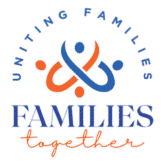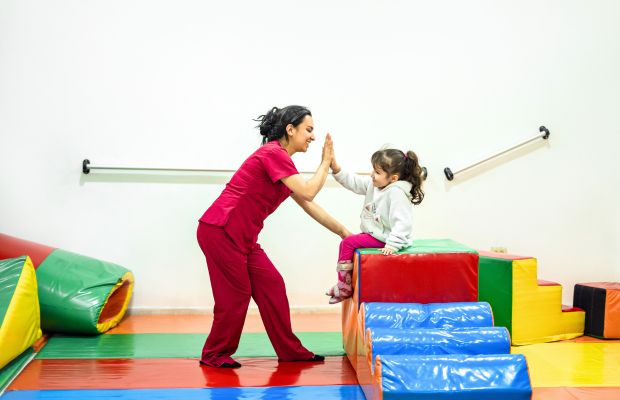For many individuals, performing daily tasks like dressing, eating, or managing personal hygiene comes naturally. However, for children and adults with disabilities or special needs, these “daily living skills” – often referred to as Activities of Daily Living (ADLs) and Instrumental Activities of Daily Living (IADLs) – can present significant challenges. This is where Occupational Therapy (OT) plays a transformative role. OT is a client-centered health profession focused on promoting health and well-being through occupation. For those facing physical, cognitive, or sensory challenges, occupational therapists provide tailored interventions to foster independence, enhance participation in meaningful activities, and improve overall quality of life.
Understanding Occupational Therapy and Its Benefits
Occupational therapy helps people across the lifespan participate in the things they want and need to do through the therapeutic use of everyday activities (occupations). When it comes to daily living skills, an occupational therapist assesses an individual’s abilities and challenges, then designs a personalized plan to help them overcome barriers and achieve greater independence.
The core philosophy of OT for daily living skills is to:
- Improve Function: Enhance physical and cognitive abilities necessary for tasks.
- Adapt Tasks: Modify how tasks are performed to make them achievable.
- Modify Environments: Adjust the surroundings to better support independence.
- Educate and Train: Teach individuals and their caregivers new strategies and techniques.
The benefits of occupational therapy extend far beyond just completing a task; they impact self-esteem, social participation, and overall family dynamics. By mastering daily living skills, individuals gain a greater sense of autonomy and dignity.
Key Daily Living Skills Development Areas
Occupational therapists work on a wide range of daily living skills, adapting their approach to meet the unique needs of each individual, whether they are a child learning foundational skills or an adult regaining lost abilities.
Fine Motor Skill Development
Many daily tasks require precise movements of the hands and fingers. OT helps refine these essential skills:
- Pencil Grasp and Handwriting: Improving grip, control, and legibility for school and personal tasks.
- Buttoning, Zipping, and Fastening: Developing dexterity for independent dressing.
- Cutting with Scissors: Enhancing hand-eye coordination and bilateral coordination.
- Using Utensils for Eating: Promoting effective and independent feeding.
- Manipulating Small Objects: Such as picking up coins, opening containers, or building with blocks.
Sensory Processing Support
Sensory processing differences can significantly impact an individual’s ability to engage in daily tasks. Occupational therapists provide strategies to help individuals effectively interpret and respond to sensory information:
- Addressing Sensory Sensitivities: Helping individuals cope with over-sensitivity to sounds, textures (e.g., clothing tags, food textures), smells, or lights that can make daily tasks overwhelming.
- Regulating Sensory Input: Implementing sensory diets or activities that provide calming or organizing input (e.g., deep pressure, heavy work) to improve focus and reduce distress during routines.
- Improving Body Awareness: Enhancing proprioception (sense of body position) and vestibular processing (sense of movement and balance) which are crucial for coordination in activities like dressing or navigating spaces.
- Reducing Aversions: Gradually introducing challenging textures or sensory experiences related to self-care (e.g., brushing teeth, hair washing).
Self-Care Independence Training
These are the fundamental tasks that enable personal autonomy:
- Dressing: Learning sequencing, manipulating fasteners, and choosing appropriate clothing.
- Grooming: Mastering brushing teeth, combing hair, washing face, and personal hygiene.
- Toileting: Developing independence in all aspects of bathroom routines.
- Feeding: Using utensils, managing different food textures, and developing appropriate mealtime behaviors.
- Bathing: Safely and effectively washing oneself.
Environmental Modifications for Success
Beyond skill development, occupational therapists also assess and recommend changes to the physical environment to support independence:
- Adaptive Equipment: Recommending tools like built-up handles for utensils, dressing aids, non-slip mats, or shower chairs.
- Home Accessibility: Suggesting modifications like grab bars, ramps, clear pathways, or adjusting counter heights.
- Task Organization: Structuring spaces and organizing materials to make tasks more manageable (e.g., visual schedules for routines, clearly labeled drawers).
- Lighting and Noise Adjustments: Modifying environmental factors to reduce sensory overload during daily activities.
- Technology Integration: Exploring assistive technologies that can aid in communication, organization, or task completion.
Home-Based Occupational Therapy Strategies
The principles of occupational therapy can be seamlessly integrated into daily home routines, reinforcing skills learned in therapy sessions and promoting consistent progress.
- Break Down Tasks: Divide complex tasks (e.g., getting dressed) into smaller, manageable steps.
- Use Visual Schedules: Pictures or written lists can help individuals understand the sequence of daily routines.
- Practice Consistently: Regular practice in a supportive environment is crucial for skill acquisition.
- Create Opportunities for Choice: Empowering individuals with choices within their daily routines fosters engagement and motivation.
- Positive Reinforcement: Celebrate efforts and successes, no matter how small, to build confidence.
- Adapt Materials: Modify tools or clothing to make tasks easier (e.g., elastic shoelaces, larger buttons).
- Collaborate with Your Therapist: Work closely with your occupational therapist to ensure home strategies align with therapy goals and receive personalized guidance. Many skilled occupational therapists serve families right here in Miami, Florida, offering in-clinic and sometimes in-home services.
Occupational therapy is a vital pathway to greater independence and participation in life’s most essential activities. By addressing specific skill deficits and modifying environments, it empowers individuals with disabilities and special needs to live more autonomously and engage fully in their communities. At Families Together FL, we champion approaches that enhance daily living and overall well-being for every family member.

